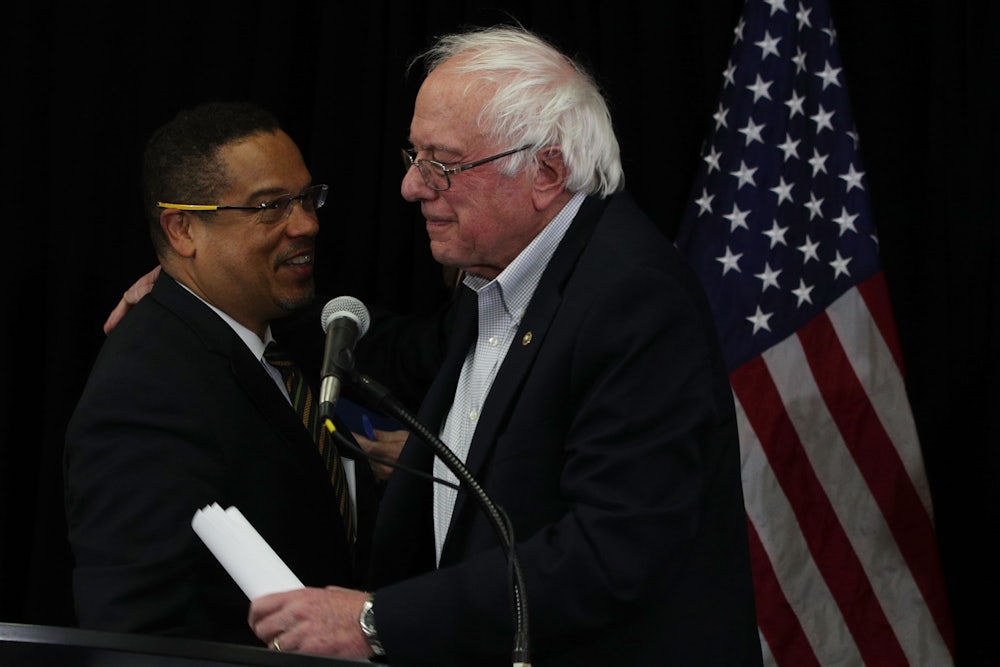The race for DNC chair is getting heated. Shortly after the election, it looked like it was going to be a cakewalk for Minnesota congressman Keith Ellison. He quickly racked up all the right endorsements—Elizabeth Warren and Bernie Sanders and Chuck Schumer and the AFL-CIO and Bill de Blasio. (OK maybe not that last one.) He did the rounds on the Sunday shows, saying all the right things about broadening the party’s base—bringing white working class voters back into the fold without losing its progressive, multicultural base.
But then things started to shift. The Obama White House was not thrilled with the idea of Ellison leading the DNC—and many of the leaks have suggested that they were uncomfortable with Ellison’s identity (he’s black and Muslim), more than anything else. Labor secretary Tom Perez jumped into the fold with the White House at his back.
And now, Ellison is dealing with opposition research dumps—something of an oddity in a race for party chair. Almost immediately after he became a candidate, Ellison’s past support for Israel was questioned, along with questions he had made (and later repudiated) about Louis Farrakhan. On Wednesday, The Hill reported that “Ellison’s critics in the DNC and some supporters of Labor secretary Tom Perez... are pointing to the Minnesota Democrat’s past tax troubles, campaign finance violations and minor legal issues that once led to his driver’s license being suspended as evidence that he’s ill-equipped to lead the DNC.” These are, The Hill goes on to note, issues that Ellison has dealt with before—they first emerged when he was running for Congress in 2006—and all of them date back to the 1990s.
One of the strangest things about this is that Perez has fine progressive bona fides, even though he isn’t quite Ellison, and could easily make a number of substantive arguments about why he’s the right man for the job. Similarly, the most important question facing whoever leads the DNC is what they’ll do about the Democrats historic weakness at the state-level.
But that’s not the case that Perez and his backers are making. Instead, they’re reading from the Clinton/DNC primary playbook: tipping the scales of a winnable race and alienating the progressive backers of a progressive candidate for no discernible reason, other than that it might make winning slightly easier. One of the many lessons that Democrats should be learning from the past year and a half is that trashing the grassroots has long-term consequences and that opening up the DNC to voices outside of the entrenched political establishment is important. Instead, the people in power are doing everything they can to hold on to it—even though they’ve done little to deserve it.
This post has been updated.
